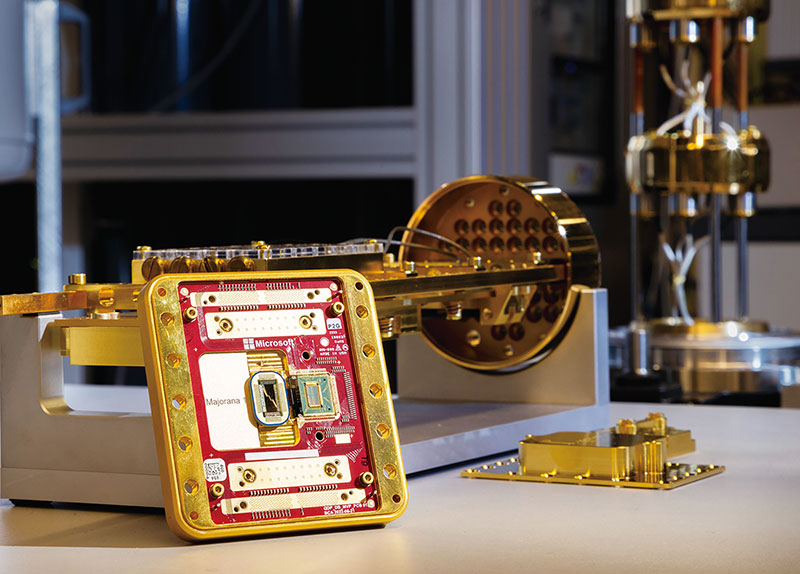
Think of a computer that can do in minutes what would take today’s most powerful supercomputers billions of years. That is the future that Microsoft aims to realize with quantum computing, with the help of its latest breakthrough – the creation of the world’s first quantum computing chip utilizing “topological qubits.”
Majorana 1 is a chip powered by the world’s first topological superconductor or topoconductor, a type of material that can create a new state of matter that is neither solid, liquid, nor gas. In harnessing this, it is possible to create a more stable, fast, and small qubit – a topological qubit. According to Microsoft, topological qubits are more stable and resistant to environmental interference than other qubit technologies. The Majorana 1 chip, based on topological qubits, is thus reliable and error-resistant by design. This once-theoretical approach to quantum computing also offers a way to develop quantum systems that can fit in a palm-sized chip, bringing scientists closer to building a quantum computer capable of tackling complex problems.
To understand the importance of this development, imagine you’re trying to find the fastest way through a giant maze. A regular computer would test one path at a time, moving forward, hitting dead ends, and backtracking until it finds the correct route. In contrast, a quantum computer could explore all possible paths instantaneously, instantly discovering the shortest way out. This ability could help in fields like medicine, artificial intelligence, and energy efficiency by solving complex problems much faster than today’s computers.
But not everyone is convinced yet. Microsoft has published its research, but some physicists are skeptical about whether this method will work as expected. Even if it does, using it to develop a fully functional quantum computer will take time. Microsoft’s scientists agree it is still years away, but not decades.